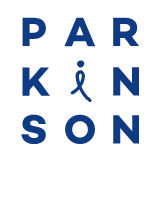- Parkinson’s disease
- Services offered
Free, confidential and bilingual
Opening hoursMonday to Friday : 8:30am – 4:30pm
Saturday and Sunday : closedFor urgent information outside service hours, you can refer to the Info Santé line by calling 8-1-1.
- Research commitment
- Get involved
- Donate
- About us
Home > Parkinsons Disease > Symptoms > Dental and Oral Problems
Dental and Oral Problems
Dental health can affect well-being and quality of life. Certain symptoms of Parkinson’s disease can cause dental and oral problems.
Having a healthy mouth enables you to chew, taste, swallow and speak properly. Strong, healthy teeth help you enjoy your food.
Why are people living with Parkinson’s disease at risk of developing oral health problems?
Certain symptoms of Parkinson’s disease and side-effects of medications can cause dental and oral problems.
Having a dry mouth can cause discomfort and difficulty swallowing and speaking, but it can also lead to more serious problems such as cavities and gum disease. Dry mouth is a common side-effect of the anticholinergic medications used to treat Parkinson’s disease and other health problems you may have.
Your doctor may change or adjust your medication to alleviate your dry mouth. You can also:
- Use over-the-counter toothpaste, mouthwash or lozenges recommended for dry mouth.
- Have sugar-free candy or gum that contains xylitol. If you eat regular candy, be aware that you probably won’t have enough saliva to neutralize the sugar in your mouth, putting you at greater risk of developing cavities. (a sweetener that prevents tooth decay)
- Sip water frequently to hydrate your mouth.
- Talk to your dentist about prescription fluoride treatment, as dry mouth can lead to tooth decay.
- Avoid mouthwash that contains alcohol, as it increases dryness.
- If you wear dentures, remove them at night to give your mouth a chance to recover.
Sometimes, the opposite problem occurs. Your mouth may have a little excess saliva due to decreased swallowing movements. You aren’t actually producing more saliva, you’re just not swallowing as well. Your doctor or a speech therapist can help you improve your swallowing.
In the meantime, try these exercises in front of a mirror. They will show you how hard you need to close your mouth to prevent saliva from leaking out.
- Press your lips together as tightly as possible and keep them closed for 4 seconds, release, then repeat 5 times.
- Smack your lips.
- Stretch your lips into a wide smile, count to 4 and relax.
Parkinson’s disease also affects the muscles in your jaw and face, which may contribute to your difficulty swallowing and chewing.
Do I need to see a dentist who specializes in Parkinson’s?
Most dentists will be able to treat you regardless of how advanced your Parkinson’s disease is. However, it is vital that you tell your dentist you have Parkinson’s disease and the associated symptoms.
Your dentist will suggest a routine adapted to the condition of your mouth in order to prevent, identify and treat the problems most often associated with Parkinson’s disease. They will also be able to give you brushing techniques that are best suited for the condition of your mouth.
How can I improve the way I clean my teeth?
Tremors, loss of dexterity, muscle rigidity, dyskinesia and/or freezing can make brushing your teeth difficult. An occupational therapist can give you strategies to help you maintain your oral hygiene and suggest special equipment (e.g. a toothbrush with a wider handle).
The following strategies may help:
- Listen to music while you clean your teeth. It may help keep your arm from freezing and lessen your tremors.
- Get an electric toothbrush. Since it brushes automatically, you won’t need to move your hand as much, and the weight of it may lessen your tremors.
- Sit down when you brush your teeth. If you have trouble with your balance, sitting down can enable you to focus your attention on cleaning your teeth.

